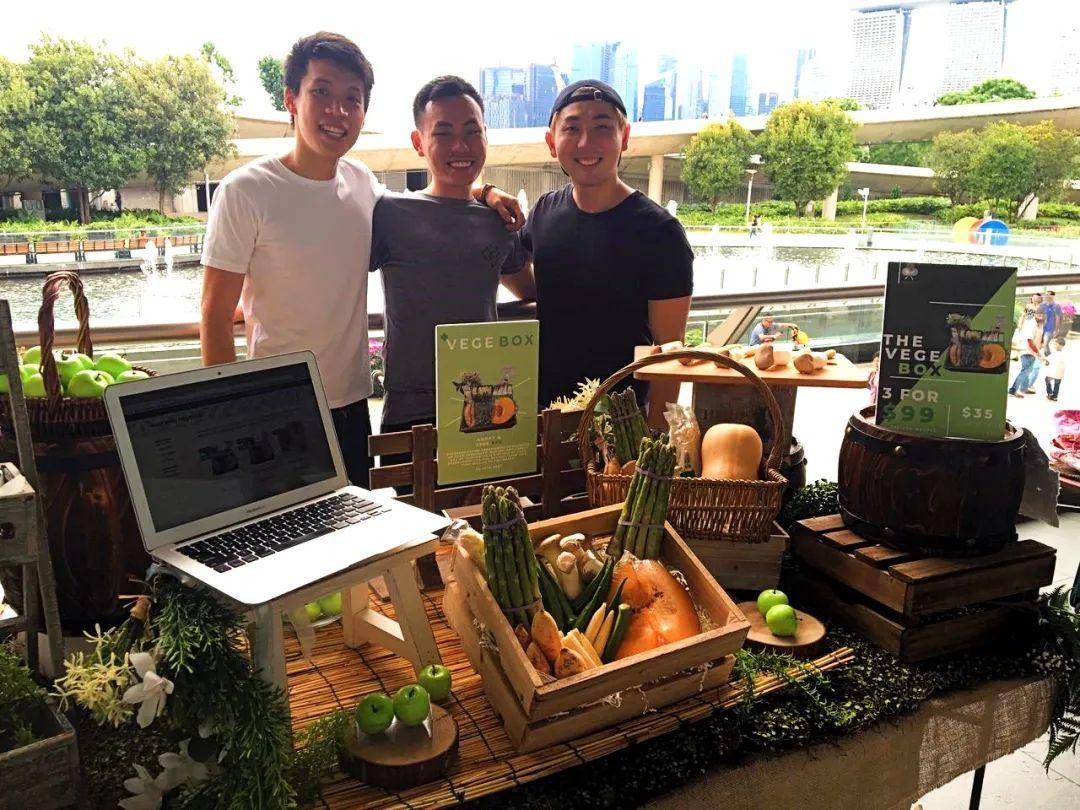KrASIA深度|5 thoughts from Nicholas Lim, co-founder of TreeDots


- Jul. 15, 2021 -
KrASIA 是36氪出海的兄弟英文媒体。作为英文世界理解亚洲的窗口,KrASIA base 在北京、香港、新加坡和印尼等地的本地团队在持续地向英文世界描述真实的亚洲新经济生态。今天故事的主角是致力于缓解粮食浪费问题的 TreeDots。
接下来我们还将为读者带来更多具备全球视野的中英文内容,欢迎持续关注。也欢迎感兴趣让海外读者更了解自己的中国公司与我们取得联系。
The idea behind TreeDots is simple: gather food that is perfectly fine but rejected by supermarkets and retailers, and then sell it to F&B establishments and households at lower prices. Restaurants and individual households can save money, and fresh food that would have otherwise ended up in landfills or incinerators makes it onto our plates instead.
KrASIA spoke with Nicholas Lim, one of TreeDots’ co-founders, to hear his thoughts about salvaging edible food and challenges that might prevent it from truly taking off.
The following interview has been edited and consolidated for brevity and clarity.
Nicholas Lim (NL): When I was interning at a shipping and commodities firm, there was a batch of avocados that went from Mexico to China, and my colleague was in charge of this transaction. China’s regulations are super strict—they would test ten cartons, and if one had any problems, the entire container would be rejected. In that deal, one carton had some problems, so that’s what happened. We asked the Mexican seller for a discount and sold the avocados to a buyer in the Philippines.
I discussed the case with two friends from secondary school, Tylor Jong and Jiacai Lau, and we decided to start something. It sounded fun.
NL: We started by carrying fruits, vegetables, and dried goods, but we realized that there was a lot of unsold inventory in the meat and seafood segments as well. One of the biggest poultry suppliers in Southeast Asia, decided to come on board and use TreeDots. Then another conglomerate joined up. We were the first ones [in Singapore] to do food loss alleviation for meat products, which are among the most expensive items in F&B procurement. By being able to offer cost savings there, we were able to grow very quickly.
TreeDots is also in Kuala Lumpur. When we expanded there last year, it was at the start of the pandemic, so we immediately went into social commerce instead of starting with supplying businesses. The idea is the same, but the majority of TreeDots’ income in KL is from group buying.

NL: It’s a fair characterization. Right from the beginning, we’ve wanted to reduce food loss, which stems from inefficiencies in the entire F&B supply chain. Clearing unsold inventory helps, but that’s just the tip of the iceberg—it is a solution that does not prevent food wastage. We looked deeper, and we found that the majority of food loss comes from suppliers’ biggest customers: supermarkets. They have requirements to make sure everything looks nice and reject the rest. Most of our inventory comes from rejections from retailers.
NL: I think a lot of this is about how society shapes what food “should” look like. In the past, when people were more in touch with their food, they would go to wet markets, they would see how chickens get slaughtered, or they might live close to farms and see how vegetables grow. As children, we learned that apples are red and bananas are yellow—later, if we see an apple that is not perfectly red, it’s “bad.”
What we’re changing is a deep-rooted issue that has been taught since we were young, and that’s probably why the idea behind TreeDots has not been adopted as quickly as we had hoped.
NL: We are working closely with the Singapore government for the “30 by 30” food goal [to produce 30% of the city-state’s nutritional needs domestically by 2030]. A lot of moving parts are linked to this: two years ago, food loss was 800,000 tons per year, an amount that could feed Singapore for seven months. Cutting that loss would help limit the imports that we need and allow local farms to ramp up production to compete with overseas exporters.


寻求报道、与作者交流、商务合作、投稿转载,请扫描下方二维码关注公众号“36氪出海”,点击菜单栏-联系我们-合作需求,扫码填写表单,与我们联系。


抱团交流
一个集大神卖家与逗趣同行于一体的交流群,扫码添加客服微信(备注“进群”哦)。

目前100000+人已关注加入我们












文章为作者独立观点,不代表AMZ520立场。如有侵权,请联系我们。


